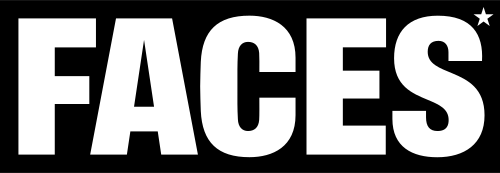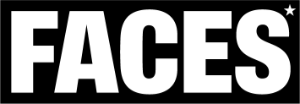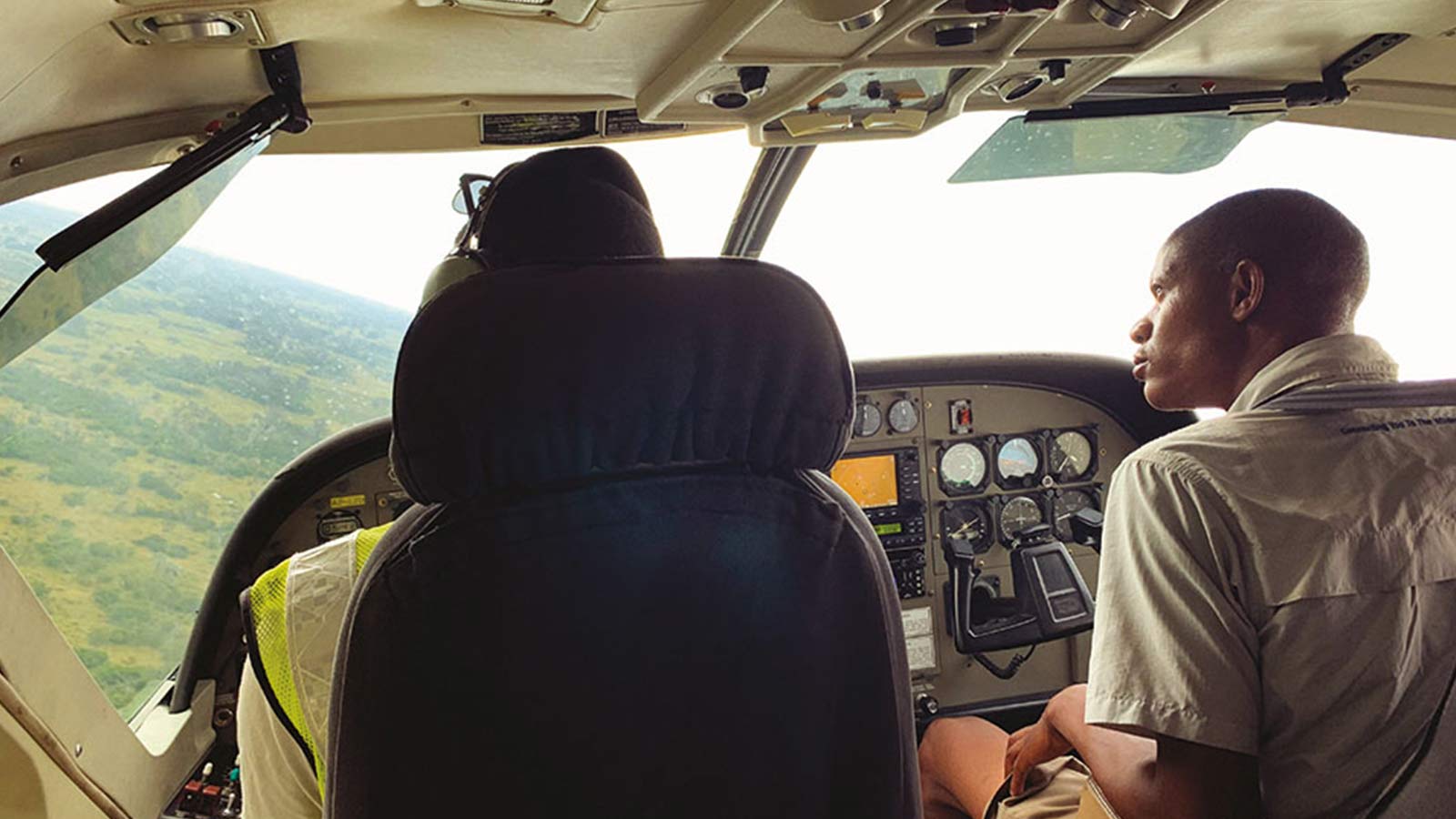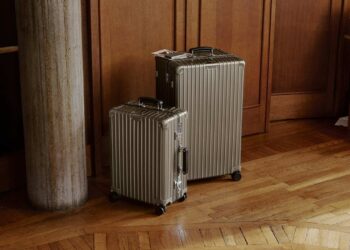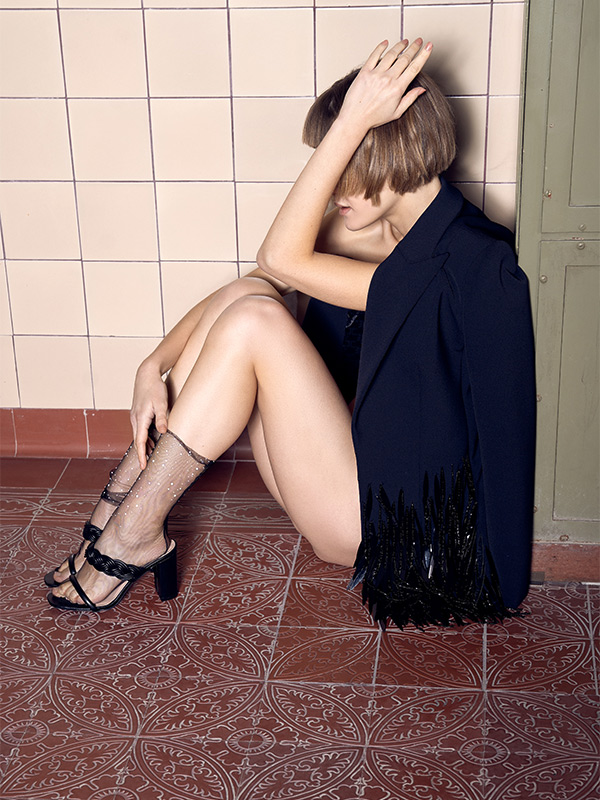We regularly send our author Maximilian Reich to the most remote places in the world to explore the ass end of the world instead. This time: the Okavango Delta.
I sit on a wooden chair in the small office and check the news on my smartphone. The President of South Africa announces that his country is closing its borders due to the coronavirus pandemic. The other African countries too. Rwanda, Tanzania, Namibia – all closed like a colon after three plates of rice. Visas that have already been issued are being revoked, South African Airways has canceled all flights to Europe, and the main airport in Rwanda is closed. I put the phone back in my pocket and stare helplessly at the floor. Shit, now I’m stuck here in Botswana.
In the Christmas bakery
Two weeks earlier I had completely different problems. In Germany, the first people had just been infected with the coronavirus, which is why I had ordered a year’s supply of toilet paper online as a precaution. Annoyingly, I must have made a mistake during the ordering process, and now there is a pile of scented toilet paper in my bathroom that smells like speculoos cookies. Every time I had to go to the loo, I felt like I was doing my business in the Christmas bakery. Annoyed, I stared at my stock as my phone rang. It was Patrick Pierazzoli’s turn, the editor-in-chief of this magazine.
“Max, you have to go to Botswana for us. I want a travel story about the Okavango Delta.”
“Do I have to? Can’t I work from home like everyone else at the moment?”
“Bad. You are our travel journalist.”
“But only because you won’t give me another job.”
I actually hate traveling. I get thrombosis on airplanes, heartburn in restaurants, sunburn in the sun and headaches in supermarkets when I try to convert prices into euros. Then I always stand in front of the sun cream shelf with my sex face.
“Would you prefer the beauty section?” asked my editor-in-chief. “I need someone else to try out a new waxing trend…”
The right temperature
Botswana is located in the south of Africa and used to be one of the poorest countries in the world until diamonds were discovered here a year after independence. Today, the country is politically stable and has a higher gross domestic product per capita than South Africa or Egypt. The Okavango Delta is located in the north of the country. A huge natural area that is half the size of Switzerland. The 1,500-kilometer-long Okavango River fans out here into individual side arms like the fingers on
of a hand, which eventually seep into the sand. This has created a fertile ecosystem in the region that attracts a variety of animals. It is home to 444 bird species, 64 different reptiles and 122 mammal species, including lions, rhinos, elephants, zebras and giraffes. People: 0. The last inhabited village is Maun, a small town on the edge of the Okavango Delta. When our plane touches down at the airport, all passengers have to remain seated. Two border control staff enter the aircraft wearing masks and gloves and measure the passengers’ body temperature. Anyone with a temperature higher than 38 degrees must go into quarantine. There are about ten passengers sitting in the rows in front of me, and I wonder how this would have been done 30 years ago, when my mother used to stick a thermometer up my bottom to take my temperature. As I’m sitting at the back, the border official starts with me. I open my mouth like a good girl: “Aaaahhh”. The lady looks irritated at first. Then she says in a stern tone from under her protective mask: “Sir, close your mouth”. She holds a measuring device in front of my face and I watch in amazement as she measures my temperature using an infrared scanner. The display shows: 37.2 degrees. I am allowed to enter the country. The tourists wear masks in the arrivals hall. Those who don’t have one simply hold something else in front of their face. Scarves, baseball caps, shawls, a mother presses her baby’s bib to her mouth and nose. The sellers of selfie sticks are certainly not doing a good business these days either, I think to myself and walk through passport control.
Mother’s soul alone
The Okavango Delta is too big for tour operators to drive tourists from the airport to their lodge by car. That’s why an airplane acts as an air cab. Although, in my opinion, the small propeller plane has as much to do with an airplane as the children’s airplane carousel at the funfair. My stomach drops to my knees. I nervously fist my smartphone out of my pocket to take a video and tap the pilot on the shoulder. “Can I leave the phone on when I switch to flight mode – or will that interfere with the electronics?” The pilot waves it off with a laugh. Along the lines of: What electronics? Whereupon my stomach sinks a little further. On the approach to the airport, which is just a strip of tarmac in the middle of the wilderness, the pilot first has to fly a loop to scare the antelopes off the runway. Only then can our plane land.
At the edge of the runway, a burly man leans against an off-road vehicle and is already waiting for me. “Hi, I’m Lesh. Welcome to Botswana,” he says kindly and heaves my rucksack into his Range Rover. He hands me a Coke, and while I hold the cool can against my sweaty forehead, Lesh steers the car through the wilderness to my accommodation. The tour operator Wilderness Safaris was kind enough to invite me. Wilderness Safaris has lodges in six different countries: Botswana, Namibia, Kenya, Rwanda, Zimbabwe and Zambia. Of these, 22 camps in Botswana alone. I will spend the next few days at the “Chitabe” camp. A lodge built mainly of wood, standing on beams about half a meter above the ground. The common room is open plan, with cozy seating areas and an unobstructed view of the Okavango Delta. Drinks at the bar are included and there is a pool on the terrace. Only one thing is strange: where are the other guests?
“They’ve all left,” the manager of the property tells me. “The tour operators have called all their customers home before the countries close their borders due to the coronavirus pandemic.” So I’m here all alone. And for a moment, I wonder if I might have made a mistake. When you’re driving alone on a highway, you start to wonder if that was really a turn-off earlier. I sit down on the sofa in the lobby, sip an ice-cold Amarula drink and gaze out at the sunset, which is turning the African bush orange. If need be, I think to myself, I’ll probably be able to hold out here in “captivity” for a few weeks until the borders are open again.
Lions don’t eat travel journalists
After dinner, Lesh leads me to my pavilion. In order to protect nature, the electricity for the lodge is generated from solar panels. There are also no fences around the camp. The lodge is in the middle of the wilderness, without a protective wall between me and the wild animals. It could well be that a lion strolls through the camp.
“So please never go to your room alone when it’s dark. A member of staff will accompany you,” says Lesh and opens the door to my cabin. A room the size of a two-room apartment, with an indoor and outdoor shower, a desk and a four-poster bed in the middle of the room. “And during the day?” I ask uncertainly.
“You can go there on your own.”
“Because the lions are asleep then?”
“No, but you can see him there.”
Sure. How stupid of me. Because only the surprise effect makes a lion so dangerous.
“Don’t worry. If anything scares you in the night – just use this three times.” Lesh points to a small box on the bedside table next to the bed. It’s a horn. Great. Now I’m reassured. I might get eaten – but at least I’ll give the lion a good tinnitus first.
“Good night. See you tomorrow,” says Lesh cheerfully.
‘Goodbye,’ I reply meekly.
However, the most dangerous animal on the continent is the mosquito. In 2018 alone, 380,700 people died of malaria in Africa. So before I go to sleep, I spray every inch of my body generously with an insect spray until the mist makes me feel dizzy. Then I put on a long-sleeved T-shirt and slip into a pair of thick cotton jogging pants, which I tuck into the bottom of my woollen socks for good measure. Now I can slip under the comforter. I don’t sleep a wink at night. I’m sweating like a pig and a lion is roaring in the darkness outside. I’ve already gotten out of bed seven times to check whether the door is really locked.
Why should I care about the Big Five
When Lesh wakes me up at 5 a.m. for breakfast, I’m totally exhausted. The buffet is opulently laid out like the breakfast table in a Rosamunde Pilcher monzette, but as my stomach is still blissfully asleep, I make do with a freshly squeezed orange juice and a muffin. Ten minutes later we set off on a safari. Our open Range Rover bumps through knee-high savannah grass, past ponds and baobab trees, while the sun rises in front of us. Lesh stops the car and points to a herd of buffalo grazing less than ten meters away from us. When the first tourists came to Africa, they were mainly hunters. On
The most dangerous for them was hunting elephants, lions, rhinos, buffaloes and leopards, because these animals attack if you miss, while the others tend to flee. That’s why the hunters called them the “Big Five”. Anyone who killed one of them was considered particularly brave. Over the years, a certain amount of hype has developed around this group. Every tourist wants to see the Big Five these days. But to be honest, a buffalo doesn’t look much different from a domestic ox. I don’t have to fly to Africa for that. Suddenly Lesh points to the left, where a lion is trotting leisurely towards us. Closer and closer, and all that separates us is a car door without a window. “Um, you, Lesh? You have a gun in your car, don’t you?”
“Sure.”
“Good.” I let out a relieved sigh.
“I even have two weapons.” Lesh raises his thick upper arms and tenses his muscles.
“Haha. Funny,” I say agonizedly.
“Don’t worry. The animals grow up with the cars. They know us.”
“You could take one with you anyway. Just to be on the safe side. You don’t have to use it.” God, I already sound like my mother when I leave the house without a jacket. I watch with bated breath as the lion passes us by without even giving us a glance. “The lion is portrayed much more brutally in the media than it is. He would probably flee when you get out of the car. Buffalo are much more dangerous,” says Lesh and starts the engine. I am very glad that I am only finding out about this now.
“Uh, Lesh? Where are you going?” I ask in horror when I realize that we are following the lion.
“Let’s see where he goes. Perhaps he comes across prey.
Don’t you want to see this?” Above all, I want to avoid being the prey.
When we return to the camp, I want to check my messages. The only place with internet is the camp manager’s small office. But even that is so slow that I’m not sure whether a lion is growling in the distance or a 90s modem is rattling away somewhere. I’ve just finished watching the video of the South African president when my phone rings. My editor-in-chief is calling on WhatsApp: “Max, you have to fly home immediately.” “You don’t know what you want either, huh?”
“Max, it’s serious. The countries have closed their borders. As soon as they close the airports too, you won’t be able to get out.” One of the officers comes in
the room and asks if he could bring me something to drink.
“An Amarula, please.”
“What?”
Crap. “I wanted to say you don’t have to worry. If necessary, I’ll wait here for two months until the crisis is over. You can count on me, boss.”
“And who is paying for your luxury stay?”
“Uh, well, I thought I could file this as an expense…?”
I hear a hoarse laugh on the other end of the line. Then the connection is lost.
Curious to find out what else our author experiences in the middle of nowhere? Follow him on Instagram (maximilian_ reich) on his travels and see where he’s headed next… if he has internet there.
Hotel tip: The “Chitabe” Lodge by Wilderness Safaris
Country: Botswana, Place: Okavango Delta, Price per night: from CHF 1’062, Room: 8,
Activities: Safari, hike, helicopter flight
Average room size: 48 square meters
Number of lions in the reservoir: 52, eaten by lions so far
Guests: 0
Further information:
www.wilderness-safaris.com
